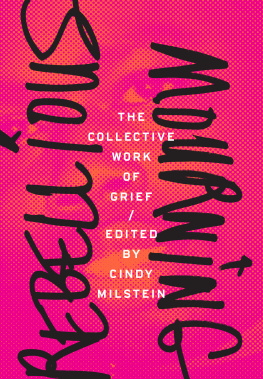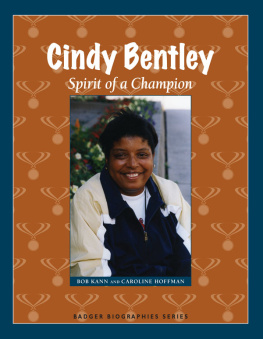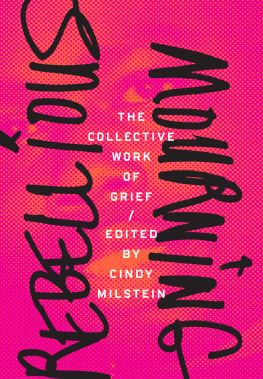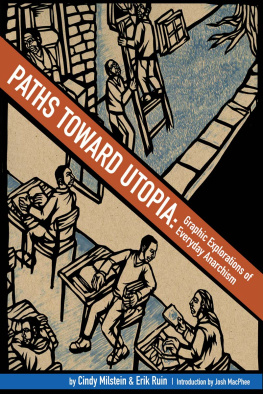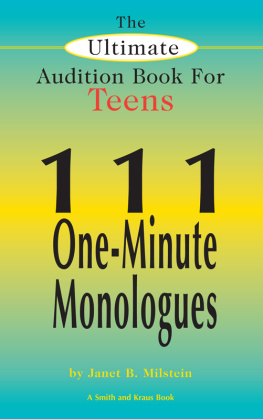Milstein Cindy - Deciding for Ourselves
Here you can read online Milstein Cindy - Deciding for Ourselves full text of the book (entire story) in english for free. Download pdf and epub, get meaning, cover and reviews about this ebook. year: 2020, publisher: AK Press, genre: Politics. Description of the work, (preface) as well as reviews are available. Best literature library LitArk.com created for fans of good reading and offers a wide selection of genres:
Romance novel
Science fiction
Adventure
Detective
Science
History
Home and family
Prose
Art
Politics
Computer
Non-fiction
Religion
Business
Children
Humor
Choose a favorite category and find really read worthwhile books. Enjoy immersion in the world of imagination, feel the emotions of the characters or learn something new for yourself, make an fascinating discovery.

- Book:Deciding for Ourselves
- Author:
- Publisher:AK Press
- Genre:
- Year:2020
- Rating:4 / 5
- Favourites:Add to favourites
- Your mark:
- 80
- 1
- 2
- 3
- 4
- 5
Deciding for Ourselves: summary, description and annotation
We offer to read an annotation, description, summary or preface (depends on what the author of the book "Deciding for Ourselves" wrote himself). If you haven't found the necessary information about the book — write in the comments, we will try to find it.
Deciding for Ourselves — read online for free the complete book (whole text) full work
Below is the text of the book, divided by pages. System saving the place of the last page read, allows you to conveniently read the book "Deciding for Ourselves" online for free, without having to search again every time where you left off. Put a bookmark, and you can go to the page where you finished reading at any time.
Font size:
Interval:
Bookmark:
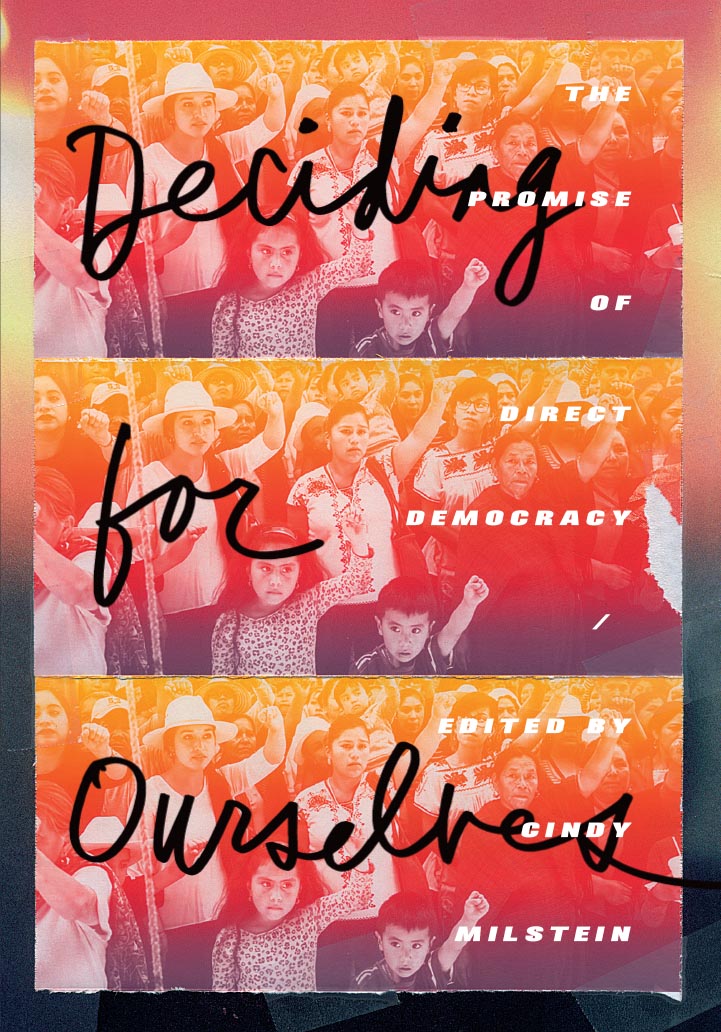
The Promise of Direct Democracy
Edited by Cindy Milstein
AK Press

To Andrew Zonneveld, without whom this anthology wouldnt have been possible; To Murray Bookchin, friend and mentor, who infused anarchism with a directly democratic ethos; And to all who still believe in and struggle to sustain the promise of collective freedom, righteous dignity, and rebellious love
Cindy Milstein
On the bleak terrain of a gray city,
Gray with misery & memories of death,
Where invisible hands devise natural disasters,
Constructing levees that break in hurricanes &
Nuclear power plants that melt in earthquakes,
While other invisible hands steal land & erect prisons,
Or shutter factories & schools,
While still more invisible hands privatize water,
Piling devastation on poor & marginalized people,
Black, Indigenous, female, queer, disabled, nonEnglish speaking,
Anyone who is other,
The haggard rainbow of humanity,
Thrown out like so much trash
Into a landfill of socially constructed sorrows
No one ever took credit,
But one morning, chalked on the sidewalk,
A message appeared:
Meet here at 7:30 p.m.
She rubbed the sleep from her eyes
To stare at the neatly printed words,
Here on her street corner.
The letters werent there yesterday.
She was sure of it.
Every day, on her way to work,
This slab of pavement was her bus stop.
She always looked down,
Waiting silently among strangers,
Memorizing the gray concrete patch,
Then silently riding to her gray office.
Theyve shut all the banks!
A frantic voice exclaimed behind her.
She rubbed her eyes again & then widened them
The bus pulled up, wheezing to a halt.
Come on, lets go downtown.
I hear people are smashing ATMs!
This stranger, her neighbor who never said hello, smiled.
The driver smiled too: No charge today.
The city was in pieces.
A financial collapse, it was said,
Based on fears of an ecological collapse.
She knew the metropole was already in tatters.
In her neighborhood, there was plenty of nothing.
At 7:30 p.m., every one of her neighbors,
People who never gave each other the time of day,
Filled the usually empty intersection.
No one ever knew how,
But that night, an assembly was birthed.
At first men spoke more often, because patriarchy wasnt gone.
Soon, though, women & other genders demanded to be heard.
White people interrupted brown ones, because racism wasnt gone.
Soon people of many colors demanded to be respected.
Nearly everyone wanted to exert control, because hierarchy wasnt gone,
Because they were all born into a world of states & capitalism & oppression.
Soon people learned, through trial & error, how to listen.
They also learned how to dialogue,
How to resolve conflict & problem solve.
Slowly, they learned how to decide for themselves.
Someone suggested they meet every evening.
Another person proposed that anyone, even kids, could participate.
Hands went up & heads nodded.
Yet they were unsure how to affirm decisions.
So they debated until they stumbled on a process:
Full consensus on weighty issues but two-thirds on minor ones;
To vote, people must attend regularly & live in the neighborhood,
But yes, given that, everyone can decide;
Decisions will be written out & wheat pasted on public walls;
All agreements can be revisited, if needed, after careful thought.
Over time, people increasingly found common ground.
They came to know & trust each other, so decisions seemed easier.
The assembly became more efficient & meetings were shorter.
Working committees, accountable to the nightly body, were set up.
The neighborhood, the neighbors, came alive.
Other neighborhoods did the same.
No one ever recollected how,
But effortlessly, cooperation between districts emerged.
Across the bleak terrain of this gray neighborhood,
People were determined to supply what they needed,
Settling on interdependent, collective spaces as the means.
Those with doctoring & wellness skills created solidarity-not-charity clinics.
Those who knew how to run machines reopened factories, without bosses.
Children designed their own schools, picking their teachers & curriculum.
No one ever knew who painted them,
But soon, banners proclaiming victory appeared on lampposts:
Para todos todo
Occupy everything
This is only the beginning
Looking back, a few years later,
Long after her & her neighbors assembly had fizzled out,
She wondered if it had been a dream.
No one ever grasped how,
But imperceptibly, order had been restored.
Financial markets & politicians took charge.
Hipster-pioneers migrated into the still-decimated city.
It hadnt been a total backslide; lovely remnants survived:
The collective theater troupe, squatting a former bank building,
A few of the block-by-block barter networks
& the hardy posse of free pedicabs.
Still, she wondered why many of her neighbors had abandoned self-governance,
Falling again under the sway of comfortable, passive compliance.
One gray Monday at her bus stop,
Her neighbor who now always said hello
Paused before boarding to add,
No one ever recalled how,
But one day, states were no longer natural or necessary.
Its not too early to reconvene our assembly.
What do you say?
Tonight at 7:30.
I originally wrote this piece as my part of a picture-essay in Cindy Milstein and Erik Ruin, Paths Toward Utopia: Graphic Explorations of Everyday Anarchism (Oakland, CA: PM Press, 2012), 7485. It was loosely based on an anecdote told by a participant in the popular rebellion that occurred in Argentina in 20012.
Cindy Milstein
Imagine a sheet of ice covering a dark lake of possibilities. We scream NO so loud that the ice begins to crack. What is it that is covered? What is that dark liquid that (sometimes, not always) slowly or quickly bubbles up through the crack? We shall call it dignity.
John Holloway, Crack Capitalism , 2010
Ten years ago, when Holloway asserted NO as a way to start to break free, it still felt as if there were many YES stepping-stones on the journey toward social transformation. And a mere ten years before that, at the turn of the twenty-first century, our collective refusal and many affirmations offered an even clearer path, as the alter-globalization movement ran joyously through the streets proclaiming that another world is possible.
Now, though, NO seems to have solidified into a bleak, fixed terrain. We are, one could argue, living in a time of no way out, no future, no hope. A deep foreboding that nothing good lies ahead has frozen us in our tracks. Despair hangs heavy, like a death shroud. Even our screamswhether of outrage, fear, or griefappear unable to penetrate the icy heart of the current social order.
A large part of todays all-pervasive NO is the powerlessness we feel against the juggernauts of fascism and ecocide. These are formidable obstacles indeed. It is no small task to crack catastrophic climate shifts, much less the brutal authoritarianism sweeping the globe. Its easy to convince ourselves now that the end of the world is possible, or more accurately, that we humans are inevitably doomed, and perhaps soon, to extinction. How can we have hope in a world with increasingly diminished expectations for the futureor even a future? Or more to the point, what could it possibly mean to hang on to hope in an unprecedented time period, when theres no reliable magnetic pole to guide our compasses and thus navigate humanity out of harms way?
Font size:
Interval:
Bookmark:
Similar books «Deciding for Ourselves»
Look at similar books to Deciding for Ourselves. We have selected literature similar in name and meaning in the hope of providing readers with more options to find new, interesting, not yet read works.
Discussion, reviews of the book Deciding for Ourselves and just readers' own opinions. Leave your comments, write what you think about the work, its meaning or the main characters. Specify what exactly you liked and what you didn't like, and why you think so.



